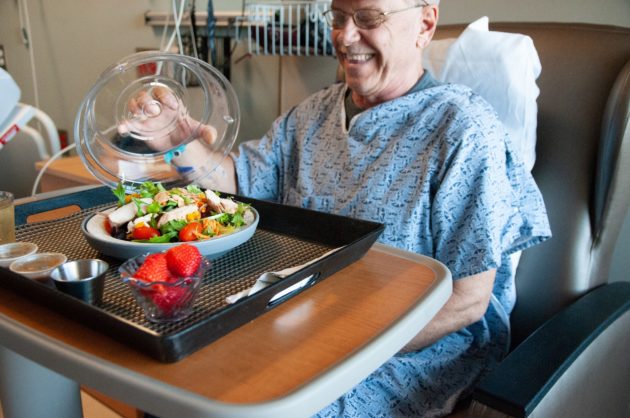Ignorance is not bliss … if you admit patients to your healthcare or senior living facility without recognizing the signs of malnutrition, there are medical consequences for the patient or resident – and that can affect your bottom line. This issue is more common than we might realize. It is estimated that 20-50% of hospitalized patients are malnourished upon admission, increasing their length of stay in the hospital, adding expense and leading to the development of escalated medical conditions including pressure ulcers, adverse infection rates and misappropriate use of resources. Failure to properly capture the diagnosis of malnutrition may leave potential reimbursements unclaimed and affect the ultimate level of care provided.1
In 2018, a Portuguese hospital studied the impact of the diagnosis and coding of malnutrition on reimbursement. A malnutrition diagnosis increased the severity of illness in 39% of those screened to be “at risk” in turn extrapolating an annual hospital reimbursement just over $1.5 million.2 Unidine’s team of 360+ registered dietitians are trained to recognize malnutrition. By diagnosing it upon admission, they conserve partners’ resources and improve patient outcomes in both senior living skilled nursing and hospital settings.
As a response to changes from the Centers for Medicare & Medicaid Services (CMS) in 2019, providers of skilled nursing in the senior living industry began to use a patient-driven payment model of reimbursement built around primary diagnosis and comorbid conditions. The number of comorbidities a patient has affects the reimbursement rate. Dietitians now routinely identify comorbidities, such as diagnosis for malnutrition, morbid obesity, pressure injury, parenteral feeding and enteral feeding, in order to maximize reimbursement for patient care.
Unidine’s network of trained dietitians look for the signs of malnutrition by conducting a nutrition-focused physical exam (NFPE), looking for fat and muscle loss, weight and functional status, energy intake, fluid accumulation and micronutrient deficiencies. They work closely with the interdisciplinary clinical team to determine appropriate coding and optimal care plans to provide specified meal strategies, nourishments between meals and hydration options available throughout the day based on person-centered needs, to support healing and promote well-being.
The routine use of dietitian-performed NFPEs has several benefits. A timely diagnosis saves time when developing a plan of care for the patient which ultimately leads to improved patient outcomes. And determining nutrition deficiency can also save facilities money that would otherwise be spent on unnecessary tests. In 2014, a representative hospital implemented a system of NFPEs to identify malnutrition. This change in clinical practice increased the rate of diagnosing malnutrition from 6% to 12%. The hospital sustained this rate through 2016, which led to avoiding unnecessary laboratory studies and generated potential cost savings.3
From a regulatory perspective, Unidine provides a competency education program specifically designed for dietitians, which teaches them how to identify malnutrition and provides enhanced tools to promote the effectiveness of malnutrition awareness programs implemented by the dietitians in the community. Unidine provides a malnutrition policy that can be customized according to the needs of the community, with evidence-based patient care as a priority in the design and in compliance with regulatory requirements.
Unidine dietitians use a fresh food-based approach to nutrition care focusing on macro-and micro-nutrients specific to patients’ needs and preferences. The dietitian plans and analyzes the nutritional adequacy of the menu to ensure that every resident can get a balanced, nutritious and delicious meal every day, in order to encourage consumption and promote enjoyment during the meal. Unidine dietitians also work with patients and their family members through education and care plan meetings to share their findings, nutrition solutions and recommendations for meal preparation and planning when returning home. Ultimately, this “food as medicine” approach helps patients and families reduce incidences of readmission by providing those formerly in their care with the necessary tools and education to continue nutritional care at home.
Dietitians play a vital role in determining malnutrition by obtaining an appropriate diagnosis code and treatment plan to help our partnered client locations increase reimbursement. Working with Unidine provides facilities with a plethora of resources, training and programming to enhance nutrition care, increase reimbursement for the community and improve patient outcomes.
By Megan Rhodes MS, RDN, LDN, Unidine Regional Director of Nutrition, Health and Wellness
At Unidine, the Regional Directors of Nutrition support the development of dietitians through clinical documentation evaluation and teaching clinical skills to improve quality of care to the patients served. Our competency training for dietitians centers around performing the NFPE, documenting malnutrition criteria and obtaining a diagnosis of malnutrition so dietitians are prepared, knowledgeable and able to make informed interventions to improve patient outcomes.
References
- https://jandonline.org/article/S2212-2672(18)31689-7/fulltext
- Fernandes, Ana Campos, et al. “Does Malnutrition Influence Hospital Reimbursement? A Call for Malnutrition Diagnosis and Coding.” Nutrition, vol. 74, 25 Jan. 2020, p. 110750. Science Direct, doi:10.1016/j.nut.2020.110750.
- Quartarolo, Jennifer, et al. “Multidisciplinary Effort to Improve the Diagnosis of Malnutrition in Hospitalized Patients.” Nutrition in Clinical Practice, 5 May 2021. ASPEN Journals, doi:10.1002/ncp.10644.

